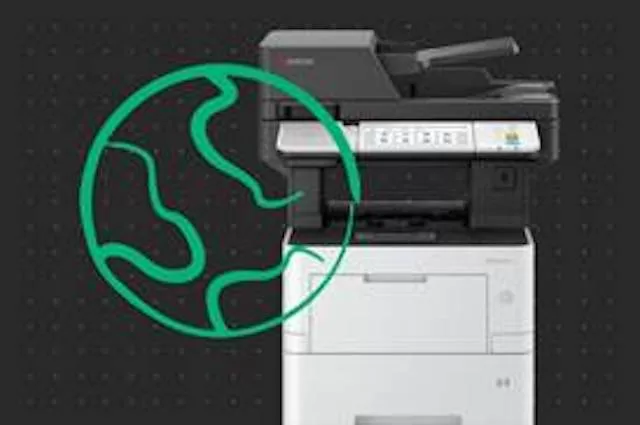Balancing profit with planet is good for business
There is already a growing understanding in the business world of the importance of balancing planet with profitability and achieving a harmonious relationship between financial success and environmental sustainability.

“At Kyocera, we believe in the concept of conducting business or making decisions in a way that considers not only economic gains, but also the impact on the environment and society at large,” says Yena Ngidi, Hardware Product Manager at Kyocera Document Solutions South Africa.
“Businesses and individuals have a responsibility to protect the planet and its natural resources while they are also aiming for economic growth – the two are not mutually exclusive. They can complement each other in a way that supports long-term prosperity and a healthy environment.”

Balancing profit and planet, Ngidi says, involves integrating sustainable practices into business strategies and operations, including reducing carbon emissions, conserving natural resources, promoting eco-friendly products, implementing recycling programs, and adhering to ethical and responsible business practices.
With a philosophy “To coexist harmoniously with our society, our global community, and nature”, Kyocera is known for its commitment to sustainability and environmental responsibility. The company places a strong emphasis on developing products and conducting business operations in an eco-friendly manner. OEM toners are a case in point.
E-waste is the fastest growing waste stream worldwide,” says Ngidi. “That’s why we design our consumables with a focus on energy efficiency and reduced environmental impact. Our advanced technologies consume less energy and minimise waste during the printing process. Our recycling programmes for consumables, such as toner cartridges, encourage customers to return used products, which are then recycled to create new products or repurposed into various materials like planter boxes or school desks.”
In addition to the benefits for your printer, choosing original toners has a positive impact on the environment. Kyocera’s toners are manufactured with sustainable practices as a focal point and recycling, reducing waste and helping to protect our planet is an integral part of the business approach.
Educating customers about the benefits of using original toner in Kyocera printers is essential, Ngidi says. “Kyocera’s toner cartridges are specifically designed and extensively tested to work seamlessly with our printers. They are eco-friendly, made from recyclable plastic with minimal environmental impact and lower in energy consumption. Original toners also use less toner and produce optimal print quality without leakage or smudging, while also ensuring a lower total cost of ownership.”
Non-original toners frequently do not contain the unique technology present in original toners, making them less compatible with the rest of the printing system. This translates into a loss of print quality and dependability, as well as a negative environmental impact.
To ensure that Kyocera is paying more than just lip-service to the environment, the company has a science-backed approach to ongoing technology development and investment in sustainability.
“Key to this is our patented energy-saving iToner launched in 2020,” Ngidi says. “It has a melting point that is 30℃ lower than most brands, using less energy when applied to the printing process, while simultaneously providing image quality and stability. This toner has halved the typical energy consumption of Kyocera’s printers and multi-function printers (MFPs).”
With no time to waste, the broader implications of business decisions and financial success must be aligned with the well-being of the planet and its inhabitants, Ngidi adds. “By striving to achieve a balance between profit and planet, companies and individuals can contribute to a more sustainable and resilient future, where economic growth and environmental preservation go hand in hand.”





























